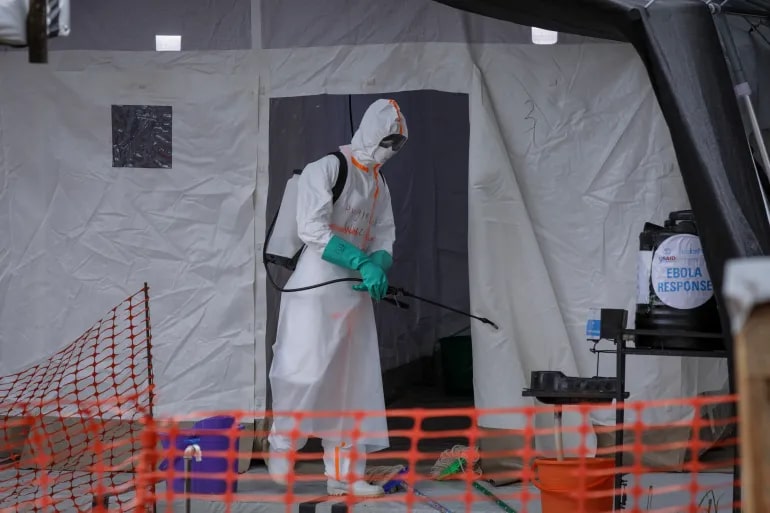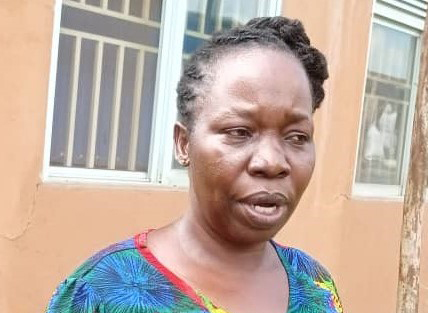KAMPALA, Uganda (AP) – A 4-year-old child has become the second person to die from Ebola in Uganda, the World Health Organization (WHO) confirmed on Saturday. This death marks a setback for health officials who had hoped for a swift resolution to the outbreak that began in late January.
The child, who had been hospitalized at the main referral facility in Kampala, the capital of Uganda, died on Tuesday. The WHO office in Uganda issued a brief statement confirming the death, and added that WHO, along with other agencies, is working to strengthen surveillance and contact tracing efforts. Further details on the death were not provided, and local health officials declined to comment on the case.
This new fatality undermines earlier assertions by Ugandan officials that the outbreak was under control. These claims had followed the discharge of eight Ebola patients in February, all of whom had been in contact with the first victim, a male nurse who died the day before the outbreak was officially declared on January 30. The nurse had sought treatment at multiple medical facilities in Kampala and eastern Uganda before dying in the capital. He had also visited a traditional healer in an attempt to diagnose his illness.
The successful recovery of eight individuals who were in contact with the nurse, including some of his relatives, had given local health officials hope that the outbreak might soon be over. However, they are still working to identify the source of the virus.
Contact tracing is critical in controlling the spread of Ebola, and there are currently no approved vaccines for the Sudan strain of the virus that is infecting people in Uganda. More than 20,000 travelers are screened daily at Uganda’s border crossings, according to WHO.
The WHO has provided at least $3 million to support Uganda’s Ebola response, but concerns have arisen about adequate funding, especially following the U.S. administration’s decision to cut 60% of USAID’s foreign aid contracts. Dithan Kiragga, executive director of the Baylor College of Medicine Children’s Foundation, a non-governmental organization supporting Ebola surveillance in Uganda, told The Associated Press that his organization had halted its work supporting local health authorities with screening traveling passengers after the termination of its contract with USAID. The contract, signed in 2022, was worth $27 million and employed 85 full-time staff.
Charles Olaro, director of health services at Uganda’s Ministry of Health, acknowledged the challenges posed by the reduction in U.S. funding. “There are challenges, but we need to adjust to the new reality,” he said, referring to the funding cuts.
Ebola, which spreads through contact with the bodily fluids of an infected person or contaminated materials, manifests as a deadly hemorrhagic fever. Symptoms include fever, vomiting, diarrhea, muscle pain, and sometimes both internal and external bleeding. Scientists suspect that the first person to contract Ebola in this outbreak likely acquired the virus through contact with an infected animal or by consuming its raw meat.
Uganda’s previous Ebola outbreak, discovered in September 2022, killed at least 55 people before being declared over in January 2023. The current outbreak is part of a broader trend of viral hemorrhagic fever outbreaks in the East African region. Tanzania declared an outbreak of the Ebola-like Marburg disease in January, while Rwanda announced the end of its own Marburg outbreak in December.
Uganda has experienced multiple Ebola outbreaks over the years, including one in 2000 that killed hundreds. The 2014-2016 Ebola outbreak in West Africa claimed over 11,000 lives, marking the largest death toll from the disease. Ebola was first identified in 1976 during simultaneous outbreaks in South Sudan and Congo, near the Ebola River, after which the virus is named.




















